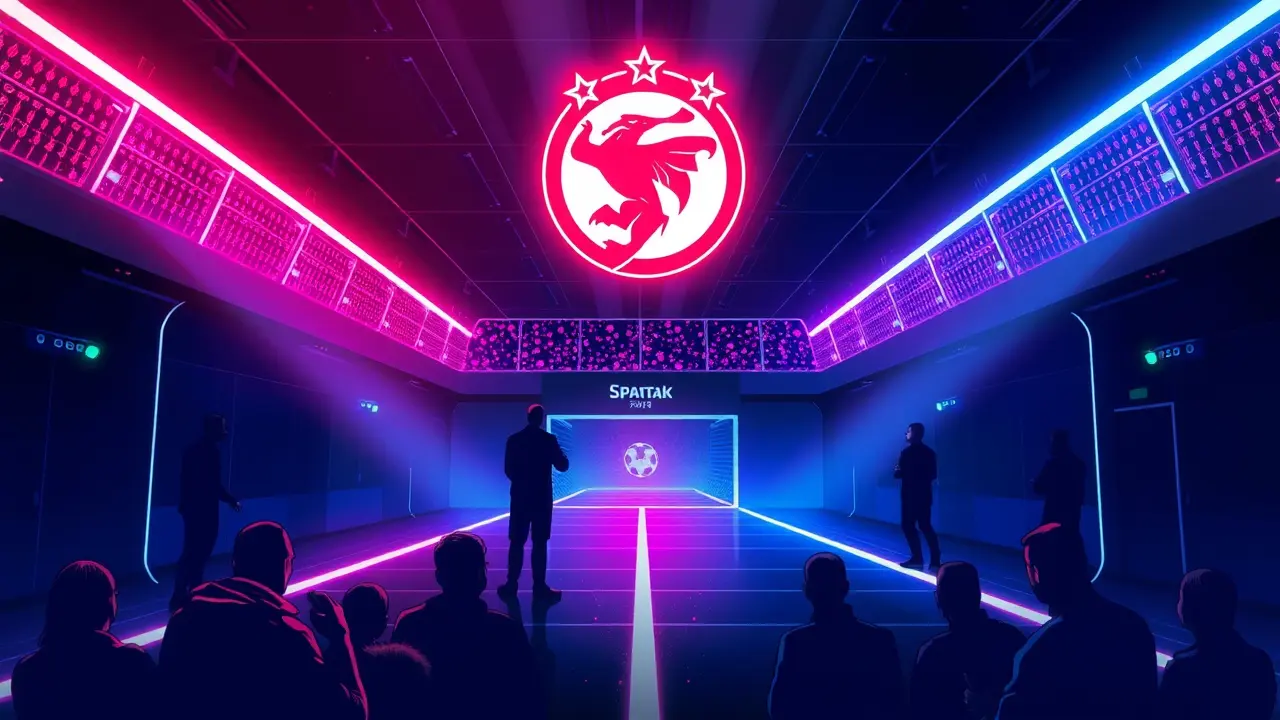Spartak director says club owes fans and promises new trophies.
The air crackles with a familiar tension at the Spartak Moscow headquarters, a feeling not unlike the electric anticipation in the Camp Nou tunnels before an El Clásico, and it’s here that new director Sergey Nekrasov has begun his tenure with a candid admission that has sent shockwaves through the Russian football landscape: the club owes its fans. In his inaugural address, following a whirlwind first day spent immersing himself in the club's operations and connecting with staff, Nekrasov didn’t offer the standard corporate platitudes; instead, he launched a direct assault on the recent past, acknowledging a debt of honor to the legion of red-and-white faithful who have, through thick and predominantly thin, been the club's unwavering heartbeat.He recognized these supporters as the undeniable 'force' of Spartak, the lifeblood that has sustained the institution through eras of both glory and profound frustration, a sentiment that echoes the symbiotic relationship between FC Barcelona and its 'culés', where the club is not merely a team but a secular religion for its followers. This public acknowledgment of a perceived failure to meet expectations is a bold, almost un-Russian, strategic opening gambit, reminiscent of when a legendary club captain takes ownership of a painful defeat, and it sets a dramatically high bar for his administration.Nekrasov’s promise is not merely for incremental improvement or stable management; it is a vow to replenish the trophy cabinet, to restore Spartak to its rightful perch atop Russian football, a mission that carries the weight of history. For those who bleed red and white, the mention of new silverware for the club museum isn’t just an ambition; it’s a necessity for a club of Spartak’s stature, a club whose history is punctuated by titles but whose recent narrative has been a story of near-misses and underwhelming campaigns, leaving them in the shadow of rivals like Zenit St.Petersburg. The challenge Nekrasov faces is Herculean, akin to the task of rebuilding a fallen giant like AC Milan or Manchester United, requiring not just astute signings and tactical nous but a cultural reset that reconnects the team's identity with its passionate base.He inherits a squad with undeniable talent but one that has often seemed less than the sum of its parts, a team that can dominate possession with the technical fluency of a top European side one week only to display baffling defensive lapses the next, a statistical inconsistency that has been their undoing. The director’s confidence in continuing the existing work 'without slowing down' suggests a belief in the foundational structures already in place, perhaps in the youth academy or a specific sporting project, but the real test will be in the translation of this positive internal impression into consistent results on the pitch, where it matters most.The road to trophies is paved with more than good intentions; it requires a ruthless transfer market strategy, a manager with the tactical flexibility of a Pep Guardiola and the man-management skills of a Carlo Ancelotti, and an unbreakable team spirit that can weather the grueling Russian Premier League season. Nekrasov’s success will ultimately be measured in cold, hard metrics: points per game, goals conceded, and most importantly, the number of times his players lift a championship shield or cup above their heads.The fans, the force he so rightly praised, will be watching with a mixture of hope and weary skepticism, their support unconditional but their patience finite. They have heard promises before, but Nekrasov’s stark admission of a debt has framed his entire tenure as a redemption arc, not just for the team, but for the club's very soul. The coming months will reveal whether this is the beginning of a new, glorious chapter for Spartak or merely another false dawn in the long, storied, and often tumultuous history of one of Eastern Europe's most iconic football institutions.
It’s quiet here...Start the conversation by leaving the first comment.
© 2025 Outpoll Service LTD. All rights reserved.
